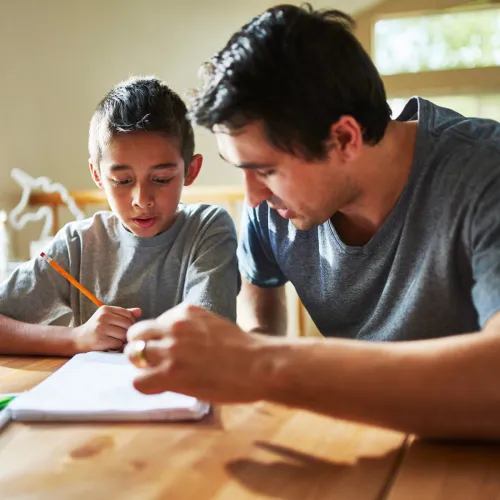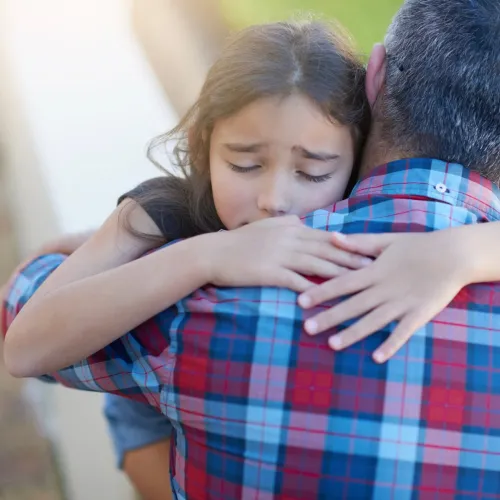4 Positive Lessons for Kids on How to Stand Up to Bullying
As a parent, it's hard to imagine your child facing bullying behavior while at school or with friends. Bullying can range from name calling to physical intimidation, and it can happen between kids of any age. It can even take place online in the form of cyberbullying. No matter where it's happening, bullying can be extremely hurtful for the person experiencing it.
You can't always be there to protect your child from negative experiences, but you can help teach them positive ways of handling bullying behaviors when encountered by them. Here are four positive lessons for kids on how to stand up to bullying.

Talk About What Bullying Is
Kids will notice that something isn't right when one of their peers is saying mean things or taking unkind actions, but they might not identify some of these behaviors as bullying if it feels normal to them. Talk to your child about what bullying is and the different forms in which it can appear, whether it be physical or emotional. Make it clear to your child that name calling, spreading rumors, put-downs, violence, and other forms of unwanted aggressive behaviors are unacceptable.
Quell Concerns About Being Labeled a "Tattletale"
A classic misconception that many children have is the idea that if they tell on one of their peers for bullying, they are "tattling". Stress the importance of talking to trusted adults—like you, their other parent, or their teachers—about bullying when they see it. Once someone knows about it, something can be done to encourage it to end. Moreover, bullies are empowered when those they are targeting feel powerless. Making others who can help aware of the situation will take power from the bully and provide a positive opportunity for the negative behavior to stop.
Encourage Fast and Assertive Action
Victims of bullies may feel scared to stand up for themselves; this is not abnormal. Yet the longer they wait to say something or receive positive support to end the bullying, the longer it persists. Teach your child that if they are being bullied, they should act fast in standing up for them self. Remind them that retaliation here is not the answer, but instead, a confident, cool-headed response will be a more effective method of ending the bullying behavior. Simple phrases like, "knock if off," "that's not funny," or, "it's ok if you don't like it, but I do," can disarm a bully. If it's another kid being bullied, encourage your child to stand with and support their peer to help ward off the bully. Remind your child not to encourage the situation to escalate by becoming aggressive or turning to violence. Calm but firm words are as far as they should go before walking away or telling an adult.
Practice Positive Comebacks and Body Language
Bullies will notice when the people they are targeting feel victimized. Defeated body language and emotional comebacks can signal that their tactics are breaking down their target. Practice using non-emotional, non-offensive language when responding to a bully. When confronted with bullying, teach your child to stay calm in their words, as well as in their body language. Ask for bullying to stop in a firm yet cool manner is a positive first step. Keeping eye contact and saying the bully's name out loud can also be powerful strategies for reducing the negative behavior. Tell your child that if the bully's negative actions do not stop after this, it's time to tell an adult. Again, stress to your child that there should be no shame in making an adult aware of bullying behavior. The sooner it ends, the sooner everyone in the situation will feel more comfortable.
Don't Forget to Practice What You Teach
Co-parenting may not always be easy, but it's important that you practice what you teach your child when it comes to standing up to bullying. Do so by finding ways to maintain peace in your shared parenting. Utilize communication strategies that do not include name calling or belittling. Most importantly, be sure to keep your communication clear and positive when around your child. As parents, you are two of your child's biggest influencers, so maintain an attitude that portrays how you want your child to be.
It's not always easy to stand up to bullying, as a kid or as an adult. But as with many things, practice makes perfect. You hope your child will never have to stand up against a bully, but if they must, having an understanding of positive ways to encounter bullying can help them overcome the situation the way you hope they would.



